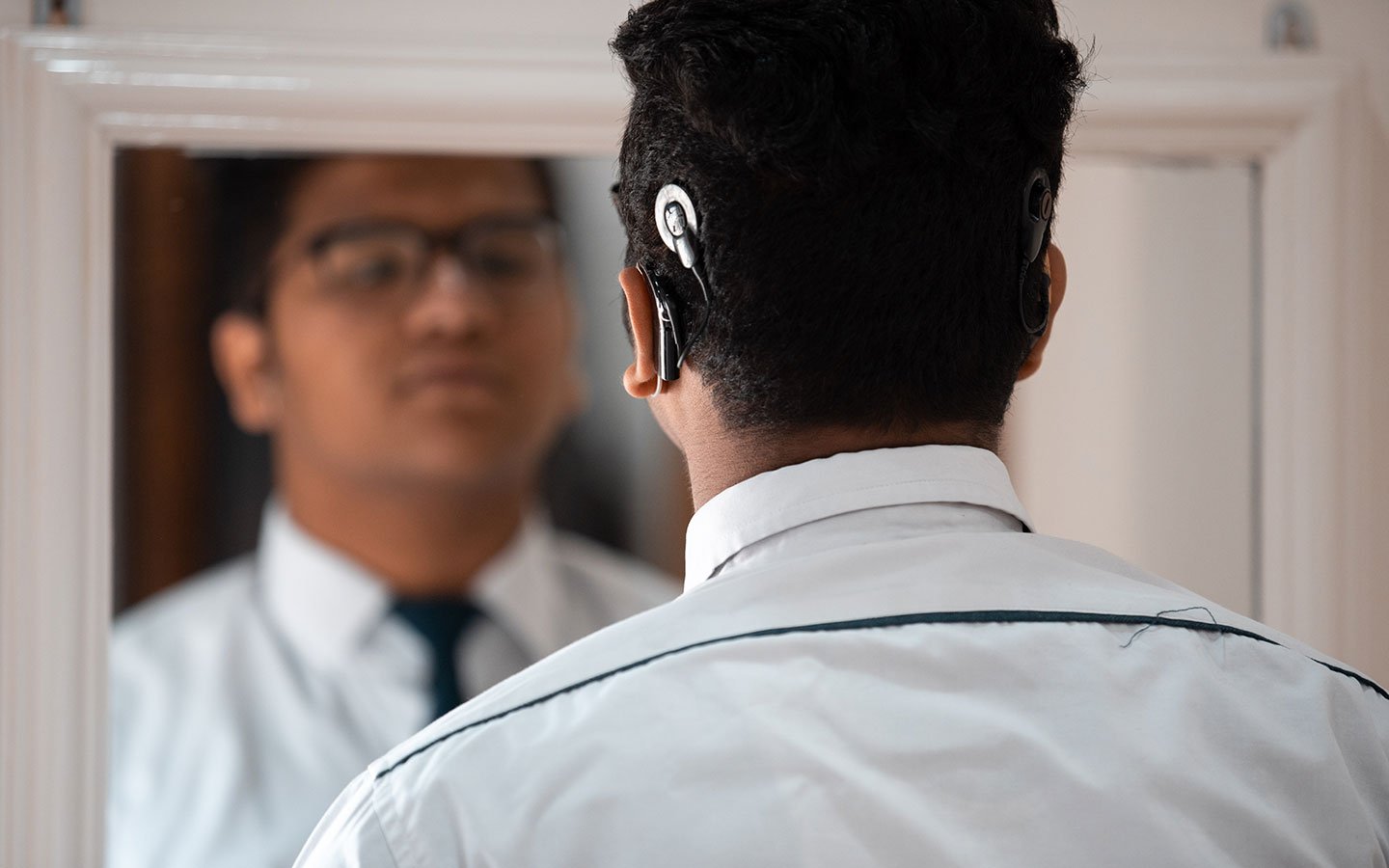Deafness and Cochlear Implant
Apr 19, 2022
Introduction
Deafness or hearing loss means inability to hear from one ear or both the ears. Hearing loss is divided into four categories, namely mild, moderate, severe or profound hearing loss. People with severe or profound hearing loss might have trouble in understanding speech while they are using hearing aids and are not benefited from the same. Therefore, it is recommended to have cochlear implants when hair cells don’t work, the auditory nerve can’t be stimulated and nerves can’t send information to the brain.
What is Cochlear Implant?
Cochlear Implant is an electronic device that provides sound signals from damaged or Non-functioning part of inner ear to the brain. Cochlear implants bypass the damaged hair cells of the inner ear which directly stimulates the nerve and send the signals to the brain, whereas hearing aids just amplify the sound.

Cochlear implant device consists of two parts:
- One part is surgically implanted into the bone surrounding the ear which consists of a receiver stimulator that decodes and send an electrical signal to the brain.
- The second part is an outside device which is made up of a microphone or receiver, speech processor, and an antenna. This part receives the sound, converts it into an electrical signal and sends it to the inside part of the cochlear implant.
Whom can it help?
- Both children and adults having hearing loss can be candidates for cochlear implant.
- Person with deafness who have little or no benefit from hearing aids.
- Implants are useful in children above the age of 7-8 months who are having severe/ profound hearing loss.
Surgical Procedure
Cochlear implant surgery is done under general anaesthesia. The Surgeon places and secures the implant under the skin and over the skull, then threads the wires containing the electrodes into spirals of cochlea. After 2-4 weeks of surgery, the sound and speech processor is matched with the implant and is programmed and fine tuned according to patient’s hearing requirement.
Conclusion
Hearing aids amplify the sound so that sound is detected by damaged ears. The quality of sound which is received by ears with hearing aids is variable. Whereas, cochlear implant bypass damaged part of the ear and directly stimulate the auditory or hearing nerve and then signals are sent to the brain which recognizes the sound. The outcome of cochlear implant varies from person to person. It depends on the rehabilitation process that the patient has to follow. A child needs special training and education in order to learn speech, language and other academic subjects. With help of many training sessions these children can also hear and talk the same way as their peers with normal hearing and are able to join normal schools.









